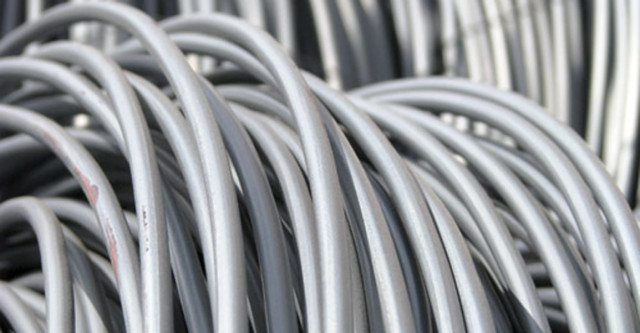Future outlook: Steel producers pin hopes on mega projects
Infrastructure investment in the pipeline will boost industry.

Steel players in formal sector often complain that the ship breaking industry often dodge tax collectors. PHOTO: FILE
“The country is going to see a big jump in construction activity. Therefore, Pakistan’s annual steel consumption can hit 10 million tons from the present 6.5 million tons in the next two years,” said Abbas Steel Group (ASG) Chief Executive Officer (CEO) Khalid Khan in an interview with The Express Tribune.

Khan pinned hope on the upcoming infrastructure projects the government is undertaking including dams, highways, housing schemes among others. Besides this, what is more important is that the expected rise in steel demand has already drawn the attention of steel producers who are looking to expand operations.
“I am sure leading steel producers can easily add a production capacity of 1 million tons provided the government listens to the recommendations of the local industry,” said Khan.
The country’s annual steel consumption is just around 6.5 million tons out of which it produces 4.5 million tons. It imports the rest, a total of 2 million tons, through different channels. Slow economic growth rate and inadequate spending on infrastructure has resulted in low per capita steel consumption in the country. Pakistan’s per capita steel consumption is just around 40kg – one of the lowest in the world – while the world average is 200kg.
Khan said that Pakistan’s formal steel manufacturing sector is already in a very depressing position due to unfair competition by the local ship breaking industry, which only pays sales tax on 70.5% of the total weight of the scrap ships. Steel players in formal sector often complain that the ship breaking industry often dodges tax collectors especially in paying the sales tax of 29.5%.
Last year, the government increased power tariffs for industrial consumers that hit the steel industry. According to Khan, around 50 steel units have already closed down their production mainly owing to tax anomalies in tax system, smuggling and high electricity rates.
The industry officials say that the cost difference between ship-plates, produced by the ship breaking industry, and steel billets, produced by the steel melters, should not exceed Rs1,200 per ton. Currently, the difference in costs hovers around Rs10,000-Rs12,000 per ton, making the local steel manufacturers vulnerable and subject to unfair competition at the hand of the ship breaking industry.
Khan believes that Pakistan needs manufacturing and not trade to provide employment opportunities to its big population.
“We need to discourage the mindset in Pakistan that prefers trade over manufacturing,” he said, “Unfortunately, for the last two decades policy makers in Pakistan have preferred trade over manufacturing, which is now hurting the country.”
Citing the example of his company, Khan said that we have 1,500 employees. If we were in trade, we would need only five employees to run Abbas Steel Group (ASG). With big population, Pakistan cannot afford trade. It is manufacturing that can only increase employment opportunities in the country, he added.
Published in The Express Tribune, April 7th, 2014.
Like Business on Facebook, follow @TribuneBiz on Twitter to stay informed and join in the conversation.



















COMMENTS
Comments are moderated and generally will be posted if they are on-topic and not abusive.
For more information, please see our Comments FAQ